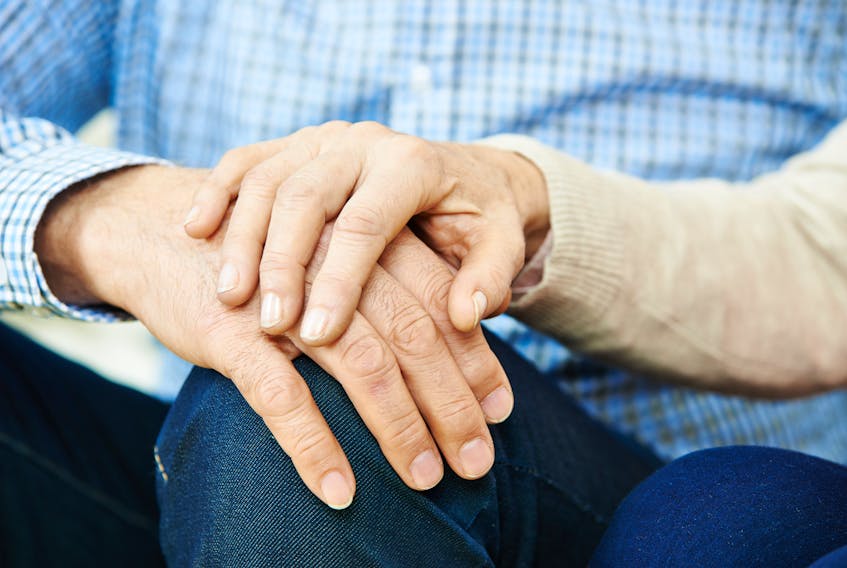A decision by a Quebec judge this week could affect the lives — and deaths — of many Canadians, but it may also widen the divide between groups on opposite sides of the medically assisted dying debate.

At issue is the proviso that, in order to meet the requirements for medically assisted death, a person’s demise must be “reasonably foreseeable,” which is incredibly vague. Foreseeable when? And by whom? Within weeks? Months? Years?
It has meant that people with deteriorating chronic conditions that could bring years of excruciating pain and a steadily decreasing quality of life are legally bound to suffer indefinitely.
Quebec Superior Court Justice Christine Baudouin said the “reasonably foreseeable” clause goes against the spirit of the Charter and Rights and Freedoms, and granted an exemption to the two people at the heart of the case, Jean Truchon, 51, and Nicole Gladu, 73. Two people in different circumstances, they are united only by their common wish to end their pain and the fact that they met all other eligibility requirements for medically assisted death.
The federal and provincial governments have been given six months to grapple with the court ruling.
Truchon has said he feels trapped in his body by the spastic cerebral palsy that has stripped away his mobility and independence.
At issue is the proviso that, in order to meet the requirements for medically assisted death, a person’s demise must be “reasonably foreseeable,” which is incredibly vague. Foreseeable when? And by whom? Within weeks? Months? Years?
As The Globe and Mail reported, “He became suicidal and considered moving his wheelchair into the path of a bus or drowning himself in a river, but did not want to traumatize or hurt bystanders.”
Gladu, too, has said she feels she has lost her quality of life to the ravaging effects of polio and scoliosis. “She now lives in constant pain, and has trouble breathing and moving,” The Globe reported.
Gladu and Truchon were buoyed by the court ruling, which gives them the right to have assistance to end their lives on their own terms, without prolonging their agony.
But, of course, there are other sides to this coin.
The organization Toujours Vivant-Not Dead Yet, created under the umbrella of the Council of Canadians with Disabilities, sees the court decision as an erosion of legislation which contained protections for some of the most vulnerable and disenfranchised members of society.
The group’s manifesto says it intends to “lead the disability community’s effort to stop the ‘right to die’ from becoming a duty to die or a right to kill” and says the right to medical assisted dying reinforces “discrimination and negative beliefs about life with a disability.”
The group also contends that “Cost-cutting pressures in health care and home care turn deadly with the introduction of physician assisted suicide.”
As someone who doesn’t currently have a physical disability, I can’t claim to intimately understand that point of view. But I can empathize.
Still, I want that legal choice, and I believe the Quebec court ruling is a progressive one. Why should a person have to suffer on for months and years when there is no hope of recovery or improvement? Why must death be reasonably foreseeable for people who have met all other stringent criteria for medically assisted death, including that they be in an “advanced state of decline that cannot be reversed” and be experiencing “unbearable physical or mental suffering… that cannot be relieved under conditions that you considerable acceptable”?
In July, there was a very moving piece by Amy Van Den Berg in The Walrus, about two Canadian couples. In each case, each spouse was independently deemed eligible for medically assisted death, and in each case they chose to take that step together.
“Both stories,” Van Den Berg wrote “illustrate a state of suffering and deep love and the complicated process of death. To both couples, and others across Canada, the end of life could be beautiful and dignified, and a choice.”
The Quebec ruling could give more people that choice in the face of unbearable anguish. Let them rest in peace — at a time of their choosing.
Pam Frampton is The Telegram’s managing editor. Email [email protected]. Twitter: pam_frampton
MORE FROM PAM FRAMPTON
• Children shouldn't be fashion victims








